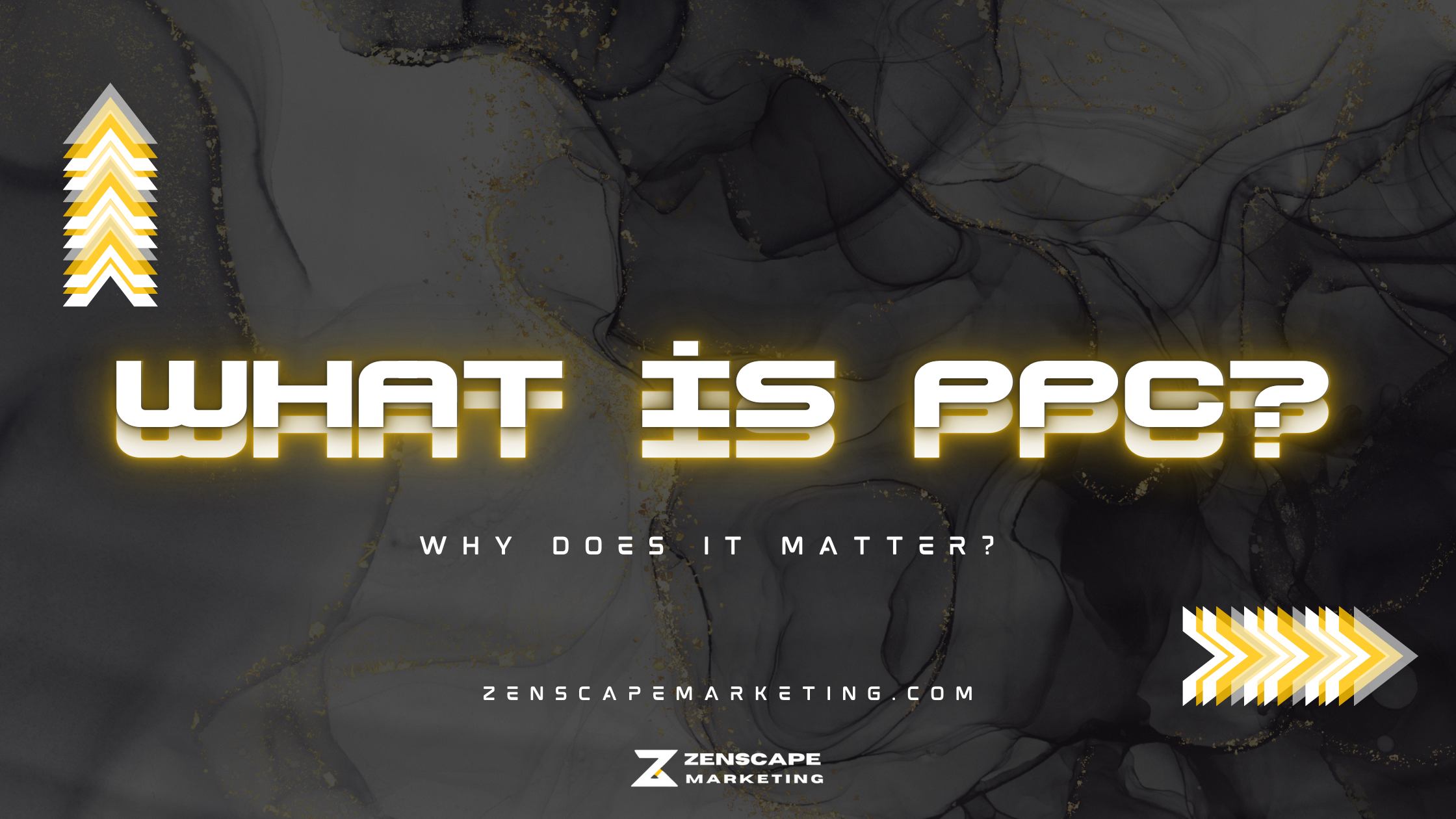In today’s digital world, Pay-Per-Click (PPC) advertising has become one of the most effective marketing tactics for driving targeted traffic and conversions for businesses. But what exactly is PPC, and why does it matter to marketers and businesses? This comprehensive guide will explain what PPC is, how it works, the major PPC platforms, and why PPC should be an essential component of your overall digital marketing strategy.
What is Pay-Per-Click (PPC) Advertising?
PPC advertising is a model where advertisers pay a fee to online publishers/search engines each time a visitor clicks on their ad. One of the significant benefits of PPC is that advertisers can target particular keywords and demographics with their ads to reach their ideal customers.
The “pay per click” term means that advertisers do not pay anything for displaying their ads. They only incur a cost when searchers click on the ad, at which point they are sent to the advertiser’s landing page. This makes PPC advertising a results-driven model with minimal upfront costs or risk.
How PPC Advertising Works
When a search engine user types in a keyword query, applicable text ads from advertisers bidding on those keywords will appear on the search engine results page (SERP). The ads are ordered by a combination of the advertiser’s bid, the quality of their ads, relevance to the query, and other factors.
For example, when someone searches for “running shoes,” ads from Nike, Adidas, New Balance, and other athletic brands that bid on that keyword would appear. If the Nike ad appears in position #1, and a searcher clicks on it, Nike would pay the search engine for that click-through to their site.
The PPC advertising ecosystem includes these core components:
– Keywords – The terms and phrases targeted by advertisers to trigger their ads
– Ad Copy – The text/image content of the advertisement
– Landing Page – The page a searcher lands on after clicking the ad
– Bidding – The auction-style model where advertisers bid on keywords
– Budget – The monthly spend cap advertisers place on campaigns
– Pricing – The cost-per-click amount determined by bids and other factors
– Tracking – Analytics reporting on impressions, clicks, conversions, costs, etc.
Advertisers aim to optimize each area to drive clicks and conversions profitably.
Major PPC Platforms
There are two dominant PPC platforms – Google Ads and Facebook Ads. Here is an overview of each:
Google Ads:
Google Ads, previously known as Google AdWords, is Google’s PPC platform that displays text ads on the Google Search Network (Google, Gmail, Maps, etc.) and Google Display Network (2+ million websites/blogs). Advertisers bid on keywords related to their products/services and target ads to users searching for those terms or visiting related sites.
Benefits of Google Ads include:
– Massive reach – Over 3 billion searches per day
– Keyword targeting based on exact match, phrase match, and broad match
– Advanced location, demographics, interests, and remarketing targeting
– Automated bid strategies optimized for conversions or ROI goals
– Search, display, shopping, video, and app ad formats
– Powerful analytics within an intuitive campaign dashboard
With Google’s vast search volume and ad placement options, Google Ads is a goldmine for reach and hyper-targeted conversions.
Facebook Ads:
Facebook Ads allow advertisers to display ads across Facebook, Instagram, Messenger, and Facebook’s Audience Network. Ad campaigns can be tailored based on detailed demographics, interests, behaviors, and more.
Benefits of Facebook Ads include:
– Highly targeted based on Facebook’s rich user data
– Objective-based campaign structure focused on awareness, consideration, or conversions
– Automated optimization for conversions or cost efficiency
– Ability to build lookalike audiences and create custom audience segments
– Powerful visual ad formats like photos, videos, and carousels
– Attribution reporting and pixel to track conversions across websites/apps
For advertisers focused on visibility and leads, Facebook provides unparalleled targeting precision and audience insights.
Other platforms like Microsoft Ads, Amazon Ads, Twitter Ads, LinkedIn Ads, and Pinterest Ads offer PPC advertising for specific audiences and objectives. But Google and Facebook make up the bulk of the PPC market.
Why Does PPC Advertising Matter for Marketers?
Now that we’ve covered the basics of what PPC is and how it works let’s explore why PPC is such an invaluable part of a comprehensive digital marketing strategy:
Drives Highly Targeted Traffic:
The targeting capabilities in PPC allow advertisers to put their message in front of their most likely customers. Targeting by keywords, demographics, locations, interests, and more means you attract qualified visitors who have expressed intent related to your offerings. This increases conversion rates vs. more general advertising.
Measurable Results:
With PPC, advertisers know exactly what they are getting for their spending. Transparent analytics provide impressions, clicks, costs, conversions, and other data to optimize campaigns and calculate your return on ad spend. You can track ROI and iteratively improve performance over time.
Increased Brand Awareness:
When users search for or express interest in your business, PPC ads give your brand prominence on high-traffic platforms. This amplified visibility and messaging reinforces brand awareness that drives future business.
Flexible Budgeting:
You have complete control over your PPC budget and can adjust it anytime based on performance or seasonal needs. Since you only pay when users click your ad, you can maximize reach and conversions within your budget. Less effective keywords and ads are automatically optimized.
Rapid Implementation:
PPC campaigns can be set up quickly since they don’t rely on long-term SEO efforts. You can launch an ad in a day instead of waiting months to rank content. This allows you to capitalize on trends and changing market conditions faster.
Competitive Advantage:
PPC levels the playing field so businesses of any size can gain an online presence and be discovered through paid search and social. Claiming your share of voice in your niche gives you an edge against competitors.
Retargeting Abilities:
Platforms like Google and Facebook provide the ability to create remarketing campaigns to engage visitors after they leave your website. This keeps your brand in mind and nudges users closer to a conversion.
When incorporated strategically as part of your overall inbound methodology, Pay-Per-Click advertising delivers outstanding ROI. The combination of precise targeting, total transparency, flexible budgets, and seamless integration with your website is why PPC should be central to your digital marketing efforts.
Conclusion:
In closing, Pay-Per-Click advertising enables advertisers to connect with highly targeted, interested audiences across major search engines and social media platforms. By bidding on relevant keywords and tailoring ads to specific visitor demographics and interests, businesses can drive qualified traffic straight from Google and Facebook to their landing pages.
The inherent benefits of measurable results, complete control over budgets, and integration with other digital channels make PPC marketing invaluable for lead generation, brand building and return on investment. For today’s data-driven digital marketers, implementing a strategic PPC program provides the edge needed to attract and convert your best customers continually.
Want to Implement an Effective PPC Strategy But Don’t Have the Bandwidth?
As this article outlined, Pay-Per-Click advertising provides unparalleled targeting capabilities, measurable results, and flexibility for companies looking to drive more qualified traffic and conversions. However, designing, managing, and optimizing PPC campaigns takes significant expertise and time – two resources most businesses don’t have readily available in-house.
That’s where a dedicated PPC agency like Zenscape Marketing can help. Our PPC specialists will handle every aspect of running successful Google Ads and Facebook Ads campaigns for your business based on your goals and budget.
We take care of:
- Conducting in-depth research on your target audience and competitors to inform strategy
- Keyword research and ad testing to optimize click-through rates
- Developing highly relevant ad creative that compels clicks
- Implementing bidding strategies aimed at maximizing conversion value
- Custom audience creation and segmentation for precision targeting
- Budget allocation optimized for results, not just spend
- Constant performance analysis and improvement to enhance ROI
With Zenscape as your strategic PPC marketing partner, you can finally leverage paid search and social advertising to drive real business growth. Our holistic approach also integrates your PPC efforts with other channels like SEO and content marketing for maximum impact.
Let our experts assess your digital presence and build an integrated lead generation program tailored to your business. Contact us today to discuss tapping into the power of pay-per-click advertising.


